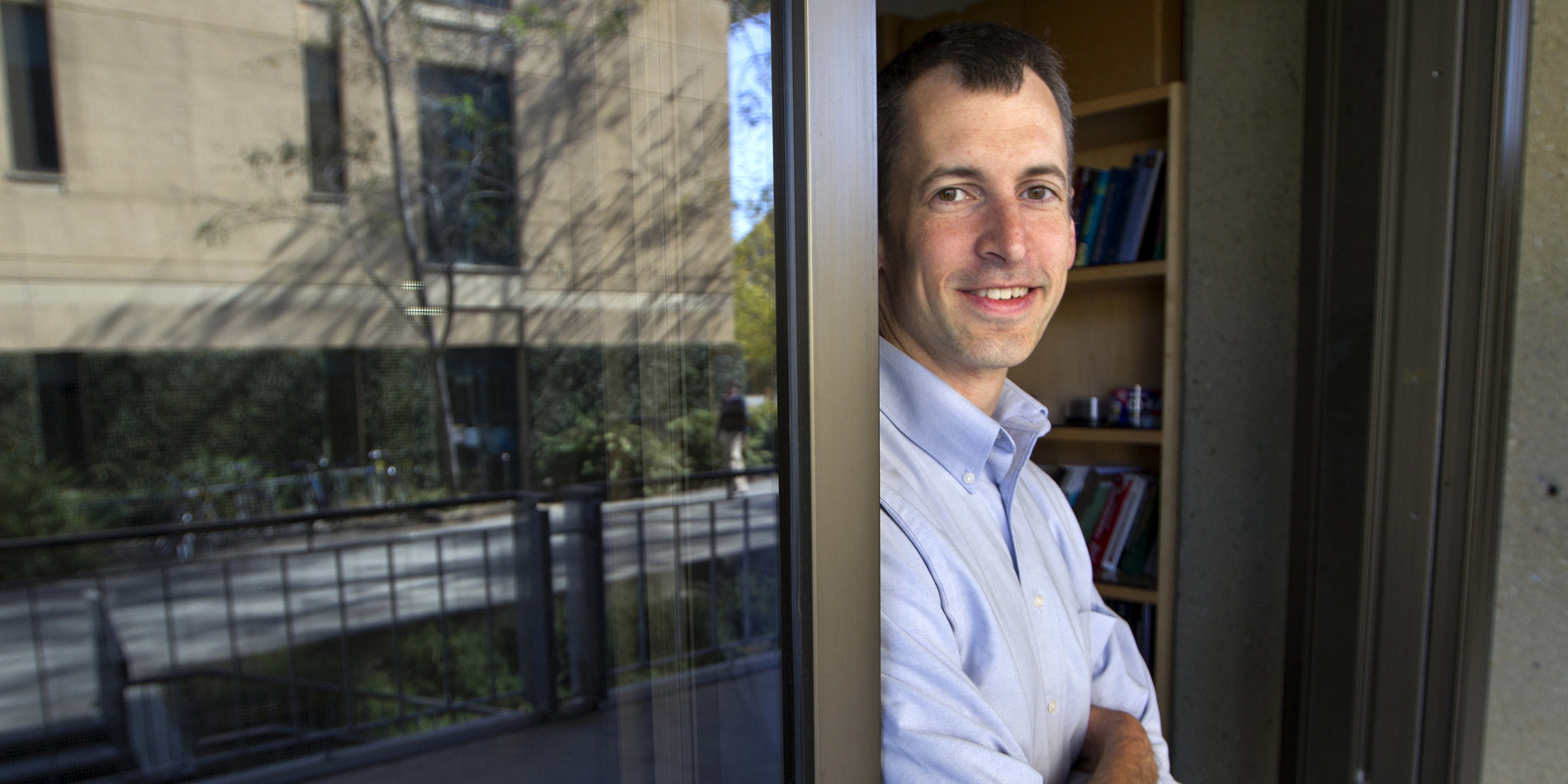Evan J. Reed, a leader in computational materials science, has died
Evan J. Reed, an associate professor of materials science and engineering at Stanford University and an acknowledged leader in the fast-emerging field of computational materials science, died at his Stanford home on March 19. He was 46.
Reed used machine learning, a branch of artificial intelligence, and supercomputers to mathematically comb through the universe of available materials looking for new and better candidates for myriad applications. Reed did not create new materials. He theorized about them and modeled them on a computer hoping to save other engineers time and money in experimental legwork.
“Evan single-handedly put our department on the map in the area of computational materials science,” said colleague Alberto Salleo, chair of the Department of Materials Science and Engineering. “He was recognized by our community for his scholarly depth and as one ‘who did it right’ in a field with a lot of background noise. He had a real knack for working at the intersection of interesting and important.”
Far-reaching impact
His work was wide-ranging. He developed a type of graphene that would twist and bend when jolted with electricity. He then imagined using that material to make almost impossibly thin computer switches. At another juncture, he worked to develop safer lithium-ion batteries.
Reed combined the physicist’s acumen for understanding how materials work at the atomic level with the computer scientist’s knowledge of data analytics. He employed those skills to become one of the world’s foremost materials experts. And he did it in a very short time. According to Salleo, Reed was an “experimentalist’s theorist.” He made predictions that were buildable, testable and had potential for impact on the field.
“Brainstorming with Evan was an event that all of us looked forward to. Evan had this magical power of framing and simplifying complex problems, cutting through hype, and honing-in on the essential knowledge,” remembered colleague and frequent collaborator, William Chueh, a professor of materials science at Stanford. “Evan’s office was frequently filled with lively discussions among students and postdocs, and his excitement could be felt even when his sliding door was closed.”
Reed published a remarkable number of studies in peer-reviewed journals in his short life – Google Scholar lists him as author or co-author on 229 cited publications, the first in 2001 when he was a graduate student at MIT. Reed, in turn, became known as an extraordinarily caring mentor and teacher to students within his sphere, investing his time in their progress and success, and making sure they understood the material they were learning.
Professionally, he was recognized with the Young Investigator Program Award by the Office of Naval Research in 2015. In 2014, he won the National Science Foundation’s CAREER Award. And the Defense Advanced Research Project Agency bestowed its Young Faculty Award on Reed in 2012.
“His unlimited passion for education, and his eagerness to explore new topics, led to Evan’s tremendous impact in the field of computational materials science. We have lost a scholarly giant and will miss him dearly,” Chueh said.
“Evan’s presence enriched everyone he worked with, and the Stanford community is a better place because he was in it,” said former student Austin Sendek, an adjunct professor in the materials science group. “His humility was notable. He encouraged students to follow their passions and rooted for them wholeheartedly. He would often step out of the spotlight and defer to a student leading the project.”
‘Heart of a lion’
Evan John Reed was born Feb. 14, 1976, in Rochester, Minnesota. He earned his Bachelor of Science degree in applied physics at Caltech in 1998. He completed his doctorate in physics at MIT in 2003. After his PhD, Reed worked as a postdoctoral researcher at MIT for a year, then as E.O. Lawrence Fellow and, later, staff scientist at the Lawrence Livermore National Laboratory for the next five years. He joined the Stanford faculty in 2010. Reed was a licensed pilot by age 16 and was a flight instructor licensed in multi-engine aircraft. He was also a distance runner and enjoyed biking, hiking, tinkering and motorcycles.
“It was always a pleasure to collaborate with him. He was so easy to work with,” Salleo recalled. “Sharing in his keen insights or a laugh at some flash of his dry sense of humor was special. He is gone far too soon.”
“Evan was the most decent of men. I never heard him issue a bad word about anyone or anything. He showed me a courage that I really never knew could exist in one person,” remembered colleague David Barnett, professor emeritus of materials science, whose office was next to Reed’s and who continued a close friendship with his younger colleague right to the end. “He was a quiet man with the heart of a lion.”
Reed is survived by his wife, Sabrina Yan, and daughter, Remy Reed, of the San Francisco Bay Area; his mother, Johnnie Sue Reed, and sister, Sally Kohlmeyer, and her husband, Dan, and their sons Ryan and Reed Kohlmeyer, all of Rochester, Minnesota. He was preceded in death by his father, John Walter Reed. The family has planned a private service. In lieu of flowers, the family requests donations in the name of Evan J. Reed be made to a charity of the donor’s choosing.



